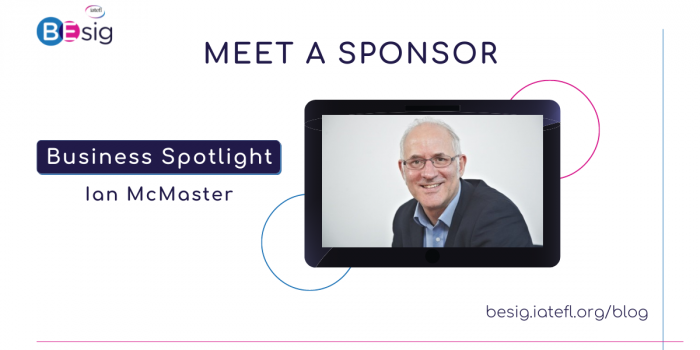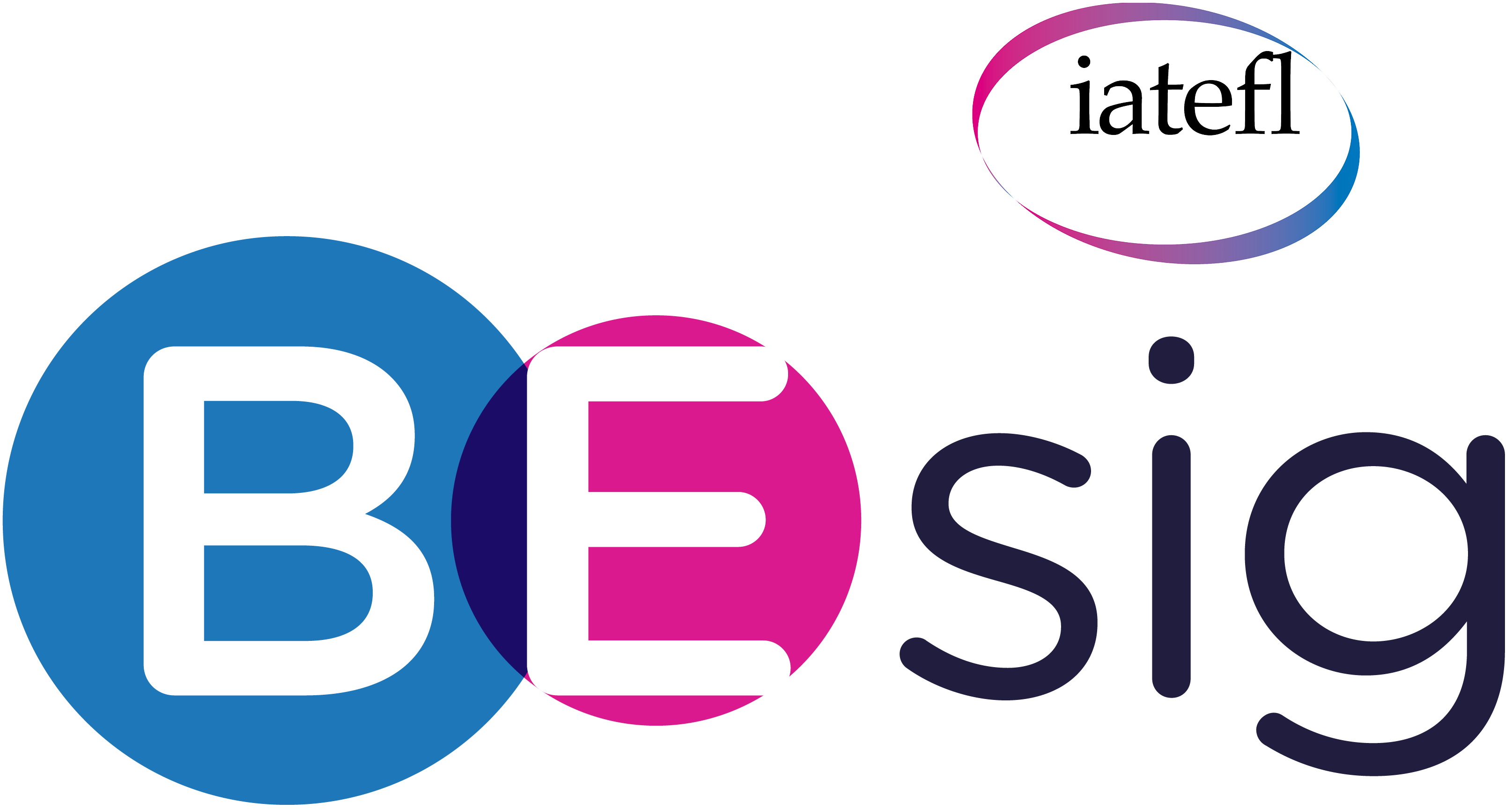
Company Profile
Business Spotlight is published by Spotlight Verlag, a subsidiary of the DIE ZEIT publishing group. For 40 years, Spotlight has been publishing multi-media language learning materials — currently for learners of English, Business English, Spanish, French, Italian and German. We also support teachers of these languages. Every month, some 1.4 million readers and users place their trust in us.
As a Platinum Sponsor during our first IATEFL BESIG online conference in 2020, Business Spotlight offered a showcase in our virtual Exhibition Room. How different was this experience compared to our face-to-face conference in Berlin in 2019? Which advantages did you find?
I don’t think an online conference can or should try to replicate a face-to-face event as the two formats have their own advantages and disadvantages. As many people have discovered over the past two years, building relationships and having chance meetings are generally easier face-to-face than online, although there are exceptions to this rule. One of the huge advantages of the online format is that it can reach a much wider group of people than a face-to-face event — simply because of the cost and time involved in travelling, which unfortunately excludes many potential delegates. The virtual exhibition room was a very interesting experience last year, although I think the numbers were lower than they would have been as the timing clashed with some of the talks. I think it’s important to have a separate timeslot for such virtual exhibition rooms.
How have the interests and questions of delegates changed over the years?
Well, I think there has been a very healthy development in terms of moving away from being mainly language focused — although this remains an important element for many people — to looking at the wider dimensions of communication, including soft skills, business communication skills, interpersonal and intercultural skills. Also, although coursebooks are still important in many contexts, delegates are increasingly interested in materials that are relevant and can be customized for their particular contexts. Digital materials and products are also more in demand and are creating great interest. The challenge here for publishers is how to develop sustainable business models.
What do you miss about face-to-face conferences?
There is something special about speaking in front of an audience and attending live talks and workshops. The eye contact and reactions of the audience provide important feedback to the speakers, and that is not always as easy to gauge online. These reactions from an audience can help to bring a presentation to life and generate a special kind of energy and buzz. Also, I’ve missed the many chance meetings and conversations that take place at live conferences — not just in the talks and workshops, but also, for example, while moving between talks, waiting in the queue for lunch or at the hotel. Many of the contacts and friendships that I’ve built up over the past 25-plus years at IATEFL BESIG conferences have come from such chance encounters rather from than planned meetings.
What are the benefits of online IATEFL BESIG conferences?
Online conferences can reach a much wider audience. Last year, we had greater representation across the globe, from South America to Asia. Online conferences are also easier for people to dip in and out of — and combine with the rest of their lives — if they don’t have the time to give the conference their full attention from start to finish. And there are features of online tools that are a real benefit, such as the chat function for exchanging views, links etc. But, like most people, I’d be happy to experience a mix of online and face-to-face formats in future, to get the best of both worlds. Ian Badger and I were chatting recently and saying that, although we were the last people ever to give a live talk at an IATEFL BESIG conference (in our closing plenary in Berlin in 2019) we’ll be very happy when our record is broken! We did joke, however, that if IATEFL BESIG wants us to open up the first conference that’s in-person again, we’d be happy to do so!
Online teaching and learning is here to stay. What can Business Spotlight offer to support business English teachers?
Business Spotlight has had a strong pedagogical element since its launch in 2001, and something like 15 to 20 per cent of our subscribers are teachers and trainers. They are also, of course, multipliers, recommending our products to their students and clients. With our magazine, audio products and exercise workbooks, we provide up-to-date and hopefully relevant content each month — in analogue and digital form — that trainers can use in their courses, covering communication skills, current business topics, intercultural aspects, vocabulary, grammar and so on. We also produce a monthly email newsletter for trainers with ideas for how they can use our materials in their teaching. And in November 2020, we launched a new website ZEIT SPRACHEN DIGITAL, with business English materials — texts, audio files and exercises — from each monthly Business Spotlight and from our archive, too.
Hybrid learning (a combination of face-to-face and simultaneous live online teaching) and blended learning (a combination of face-to-face teaching and asynchronous online instructions) have become the norm for many business English teachers. Which materials do you offer for these formats? What kind of teacher training do you offer to support teachers?
All the digital versions of our content — magazine texts, audio files and exercises — lend themselves perfectly to being used in hybrid and blended formats. Also, via our monthly email newsletter as well as our webinars and conference talks, we provide not only tips on how to use these materials in hybrid, remote and blended formats, but also tips for organizing your online teaching. For example, take the use of breakout groups. My experience is that learners — or webinar participants — are often given too little time to do or discuss the activities that they have been allocated, which leads to frustration. So, we advise trainers to chill out a bit and give their learners more time and more autonomy too, for example, by allowing them to choose who goes into which groups rather than allocating them yourself. These are small points, but they can make a difference to the dynamic of an online group.
What feedback are you getting about the importance of digital materials?
We regularly conduct surveys to develop our products further. We also invite users to describe their experiences with our products in detail in telephone interviews. These findings are important for us and flow directly into product development. What is clear is that learners want to take more control of their own learning. Although a monthly magazine is still an attractive product for many learners — and the full-on digital experience of people’s lives over the past two years seems to have generated an increase interest in print — it is clear that learners want to learn when and how they want, and with the tools, types of materials and topics of their own choice.
What has the uptake been on digital materials?
It depends exactly what we mean by digital materials. For many years now, a growing proportion of our readers and listeners have chosen to take the purely digital versions of our main monthly products: the magazine, the exercise workbook and the audio product. And many choose to take both versions in a bundle. It’s a myth to think of customers as being interested in either analogue or digital products. Most of us use both types of products during the course of the day or week. We are also seeing an increased demand for a “one-stop shop” platform where all our content is integrated in one place. This is what our new ZEIT SPRACHEN DIGITAL platform does, and I expect the demand for that to continue to grow.
What innovations do you predict in the next five years?
There will undoubtedly be a trend towards more autonomous learning, though quite possibly via technologies and products that we can’t imagine at the moment. Innovation and disruption often come from a direction that we’re not looking in. Personally, I’d like to see digital platforms offer more sophisticated communication skills training instead of rather simplistic language exercises. The pandemic has given a big push to the digitalization of teaching, and this offers many opportunities, especially for remote training and attracting new client groups. Also, there will probably be new digital learning environments that unify all the elements of our business English content directly into lessons, which will make teachers’ lives easier. Our strength at Business Spotlight will remain the fact that we can produce up-to-date, relevant and motivating content month after month; but the channels for delivering this content will no doubt change and improve as technology evolves.
Questions by Silke Riegler
Editing by Mandy Welfare
20 October 2021



